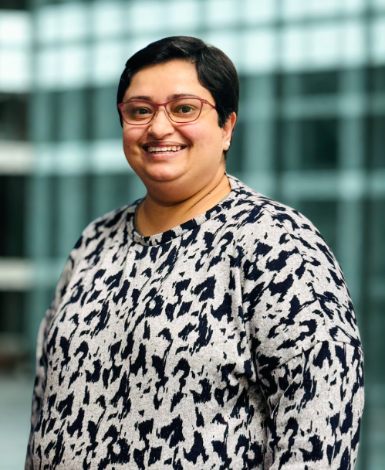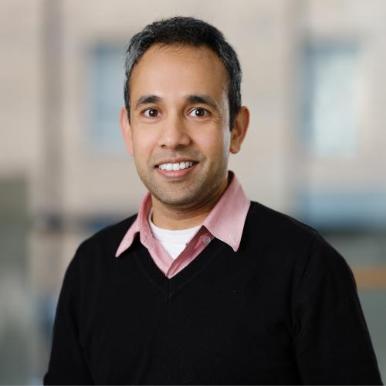News
- AgriFood Matters Podcast Series
- Recent News 2022
- Recent News 2023
- Recent News 2024
- Recent News 2025
- Ancient DNA analyses bring to life the 11,000-year intertwined genomic history of sheep and humans
- €1 million state-of-the art dairy calf rearing centre opens at UCD Lyons Farm.
- The School of Agriculture & Food Science is seeking to recruit three early-career faculty through the Ad Astra Fellows programme
- Stephen Robb - his advice to students; make sure you always keep an Ear to the Ground!
- UCD Agriculture, Food Science & Human Nutrition Careers Day 2025
- Greater than the sum of their parts
- Niamh Bambrick - Alumni Focus
- Proud day at UCD Awards Day
- Farm Walk and Talk 2025
- Minister Heydon presents Women in Agriculture Studies Excellence Award
- Development of a Hybrid Human-AI personalised learning path for VET for innovation in agriculture
- UCD welcomes New Zealand Ambassador to Ireland, Mr Trevor Mallard
- UCD Teagasc Knowledge Transfer Funded Masters 2025
- Champions for Safety
- John Roche announced as Chief Science Advisor.
- Sinead Flannery receives the UCD Values in Action Award
- UCD & Macra Agricultural Skillnet - MSc Agricultural Extention and Innovation
- Horticulture position
- UCD Student in full Bloom!
- "Communicating Irish Agri-Food to the World."
- UCD Summer Schools 2025
- UCD Plant Health for Inspectors graduates it’s first students
- UCD Students PWE
- University College Dublin rises to 118 in latest QS World University Rankings
- MSc in Humanitarian Action Students’ Visit Schedule to Wolaita, Ethiopia
- Remembering Dan Browne
- 11th CITES European Regional Plants Meeting at UCD
- From Dublin to London and Back to UCD: A Full Circle Journey in One Health
- UCD Student is awarded the 2025 Communications and Agri-Innovation Award sponsored by the Guild of Agricultural Journalists.
- 'Farmageddon' comes to UCD
- UCD Confers Michael Berkery with an Honorary Doctorate of Science
- Dr. Kevin Daly receives over €1.5million ERC Starting Grant for groundbreaking research project
- UCD goes Ploughing 2025
- Minister Noel Grealish Visits UCD Lyons Farm to Review Innovation in Agriculture and Food Science Research
- BiOrbic, leading the drive for the bioeconomy to be the cornerstone of the Irish economy.
- James Duggan is awarded Graduate Sports Scholarship
- Global Farm Platform honoured with FAO Technical Recognition for Sustainable Livestock Transformation
- COALESCE funding for research exploring how AI can assist care-plan design for survivors of gender based violence
- Mark O'Dowd - Finding solutions through technology for customers and their cattle.
- School Awards Ceremony 2025
- UCD School Awards 2025
- UCD Celebrates Research with Real-World Impact at 2025 Research Impact Awards
COALESCE funding for research exploring how AI can assist care-plan design for survivors of gender based violence

Minister for Further and Higher Education, Research, Innovation and Science, James Lawless TD, has announced funding of over €3.5 million for 16 research projects under Research Ireland’s COALESCE (Collaborative Alliances for Societal Challenges) 2025 programme.
Dr Sulagna Maitra, UCD Centre for Humanitarian Action and Co-PI Dr Vivek Nallur, UCD School of Computer Science, have received funding for their project Harm2Healing: Transforming Survivor Centred GBV Response Using Human Centred AI Agents.
The project focuses on developing AI simulations that can assist case-workers in creating care-plans that are responsive to the needs of Gender-Based Violence (GBV) survivors and are sensitive to their cultural contexts.
The awards COALESCE support excellent, interdisciplinary research that addresses national and global societal challenges by fostering collaboration between researchers and policymakers, civil society, and enterprise.
Announcing the awards, Minister Lawless said: “Harnessing the power of research is key to tackling the most pressing challenges facing our society. These awards are not just about academic excellence – they are about delivering real, tangible benefits for people and communities. Whether it’s supporting survivors of gender-based violence, driving climate action, or safeguarding our cultural heritage, these projects will make a meaningful difference. This is research with purpose, and I commend all the awardees for their dedication to the public good.”
Dr Diarmuid O'Brien, CEO of Research Ireland, commented: “The projects being announced today bring together diverse disciplines, communities, and policy partners to co-create knowledge that matters. We are proud to support projects that amplify underrepresented voices and tackle issues that are often overlooked. These research projects are advancing knowledge, sustainability, justice, and inclusion.”
Two of the projects are funded by Cuan: The Domestic, Sexual and Gender-Based Violence (DSGBV) Agency, under a newly-launched strategic strand.
Dr. Stephanie O’Keeffe, Cuan CEO, stated: “Cuan is delighted to partner with Research Ireland to establish a new research funding strand for COALESCE 2025, dedicated to Domestic Sexual and Gender-Based Violence research. A key objective for Cuan is to strengthen the existing knowledge base and build an evidence-informed response to domestic, sexual and gender-based violence, informed by the lived experience of victim-survivors.
In this regard, the creation of this important research strand is of great significance to Cuan. Given so many academic disciplines are of relevance to the study of domestic and sexual violence, Research Ireland’s COALESCE funding strand provides a rich opportunity to support action and policy-oriented research, providing much-needed insights for policy makers and practitioners, and improving outcomes for victims and survivors.”
TheHarm2HealingProject
When the survivor of GBV seeks refuge or assistance, case-workers typically use their organisational knowledge, and intuition, to come up with a care-plan. This can be contingent on the resources and priorities of the parent organisation, rather than what the individual survivor needs, resulting in a disconnect between the intentions of the case-worker and the goals of the survivor. To complicate matters, there may exist a cultural gap between the survivor and the case-worker.
Harm2Healing aims to create an agent-based simulation of survivors from various cultures and their experienced care-plans. The simulation, powered by artificial intelligence, will allow care-workers to explore multiple different care-plans, and their effects on survivors.
Dr Sulagna Maitra is Assistant Professor in Humanitarian Action and Coordinator of the International School on Addressing Gender-Based Violence in Emergencies at UCD Centre for Humanitarian Action (CHA) at UCD School of Agriculture and Food Science, she explained, "This research is inspired by the formal and informal interactions with the Community of GBV professionals in Humanitarian Action, especially experts who contribute towards UCD CHA's Addressing GBV in Emergencies course.

We are aiming to leverage human-centered agent-based simulations to help GBV case workers deliver optimal, survivor-choice-driven care in the face of escalating crises and aid cuts. The project was co-developed organically over numerous cups of coffee at Pi which, spatially, is a meeting point between humanitarian action and computer sciences".

Project Co-PI Dr Vivek Nallur, UCD School of Computer Science, added, “I am looking forward to working on this project, which represents a new direction for my research in computer science. I sincerely hope that this interdisciplinary collaboration will help break new ground in both GBV research as well as agent based simulation.”
The 16 funded projects funded in this round span the following 10 research institutions. For a full list visit the (opens in a new window)Research Ireland website.
Editorial Credit: UCD Research